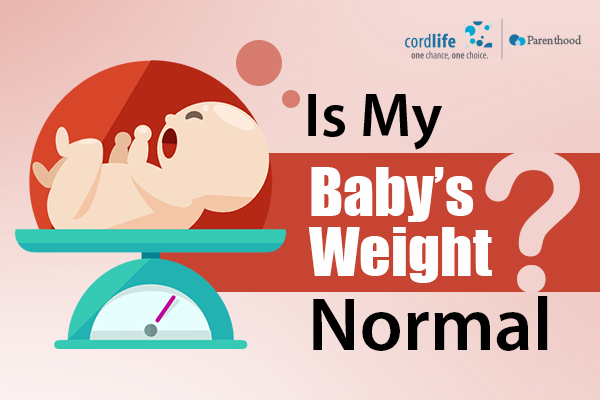Table of Contents
If you’re worrying about whether your baby is growing normally, join the club! It’s a very common factor that’s a cause for concern for most new parents. If your baby falls under the average weight, you believe that they may be ill, and if they are over the average weight, you may begin to worry about obesity. However, it’s important to realise that babies, like adults, come in different shapes and sizes, and hence the weight can be drastically different. While the average weight for a full-term baby is around 3.3kg, some healthy babies have been born below or above that weight. If your baby is born between 2.5kgs and 3.7kg, there’s no cause for concern.
Several factors contribute to your newborn’s weight at birth:
- Your weight and diet both before and during pregnancy play an important role, which is why experienced mothers encourage new mommies to eat a balanced and nutritious diet.
- Your prenatal health, especially whether you have diabetes, drink or smoke.
- Your birth weight and that of your partner can both impact your newborn’s weight.
- A younger mom will tend to have smaller babies, especially if you’re a teen mom.
- Your baby’s gender also plays a role, as boys tend to be heavier.
- If you’re having twins or triplets, you can expect them to be smaller.
You need to watch out for weight gain and weight loss, as it’s an important indicator of overall health. Your baby’s doctor will monitor this at every visit. Soon after discharge, you will notice that your baby will weigh less than they did at birth. Don’t panic! It’s absolutely normal – your baby is simply the fluid from their body. After about 5 days, you will start to notice that they are putting on weight. Your baby should be back at its birth weight within two weeks.
What Should You Do If Your Baby Isn’t Gaining Weight As Expected?
If the low weight gain is consistent, it can be due to some issues, which can be corrected. Here’s how:
- Increase your baby’s feeds to about 8 to 10 times a day. Ensure that s/he is fed every three hours during the day and every four hours at night.
- The best part of your breastmilk is at the end, so make sure that your baby is draining at least one breast in every feed.
- If your baby has trouble latching on, it will stop them from gaining weight. Try pumping your breast milk or giving them formula instead. If required, you can also consult a lactation specialist.
- Using a pacifier could mean that your baby gets tired of sucking and hence doesn’t put too much effort during breastfeeding.
- It’s possible that you are not producing enough milk to satisfy your baby fully. You could try to increase feeding or pumping to ensure that you’re making enough. Changes to your diet can also affect how much milk you produce.
If, on the other hand, your baby is gaining weight too quickly, it could be due to a growth spurt. An exclusively breastfed baby is less likely to be overfed. However, if you’re supplementing the breastmilk with formula, adjust the amount to eat more than they should be.
When it comes to weight, remember that all babies grow at their rate. If your baby is slow to gain weight, don’t worry, as sudden growth spurts will help them catch up. However, if you notice that your baby isn’t back to their birth weight within 2 weeks, or if she’s had drastic weight loss after regaining his/her birth weight, you need to visit the pediatrician. Other than that, enjoy these days when you’re small and cuddly. Before you know it, they’ll be as big and tall as you are!
